Filter by

The Places Where Community Is Practiced : How Store Owners and Their Business…
In this open access publication, the social cohesion of urban neighborhoods and their residents is examined, which is often viewed as vulnerable since increased mobility, individualization, wider socio-economic and demographic changes have fundamentally altered the basis for everyday social interaction in urban neighborhoods. Anna Steigemann gives scholarly attention to the concrete places wher…
- Edition
- -
- ISBN/ISSN
- 978-3-658-25393-6
- Collation
- XIII, 325
- Series Title
- Stadt, Raum und Gesellschaft (SRG)
- Call Number
- -
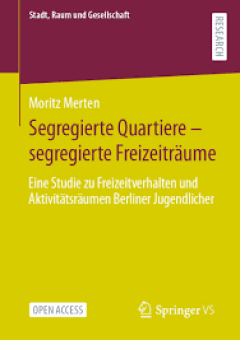
Segregierte Quartiere – segregierte Freizeiträume : Eine Studie zu Freizei…
Dieses Open-Access-Buch stellt vor dem Hintergrund einer zunehmenden sozialen Segregation in deutschen Städten die Frage nach den Auswirkungen dieser sich verschärfenden räumlichen Polarisierung auf die Sozialisation von Jugendlichen. Die Arbeit geht dabei über den quartiersfixierten Ansatz der Nachbarschaftseffektforschung hinaus und untersucht, welche Räume in der Stadt von Berliner Juge…
- Edition
- -
- ISBN/ISSN
- 978-3-658-43620-9
- Collation
- XX, 341
- Series Title
- Stadt, Raum und Gesellschaft (SRG)
- Call Number
- -
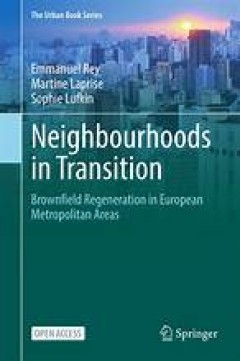
Neighbourhoods in Transition
This open access book is focused on the intersection between urban brownfields and the sustainability transitions of metreopolitan areas, cities and neighbourhoods. It provides both a theoretical and practical approach to the topic, offering a thorough introduction to urban brownfields and regeneration projects as well as an operational monitoring tool. Neighbourhoods in Transition begi…
- Edition
- 1
- ISBN/ISSN
- 978-3-030-82208-8
- Collation
- oer.unej.ac.id
- Series Title
- The Urban Book Series
- Call Number
- 307
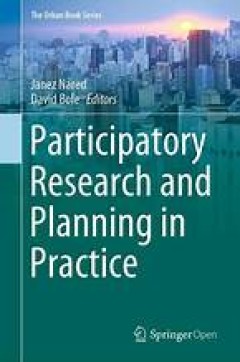
Participatory Research and Planning in Practice
This open access book provides in-depth insights into participatory research and planning by presenting practical examples of its use. In particular, it describes theoretical and methodological aspects of participatory research and planning, as well as the implementation of participatory processes in fields such as transport planning, cultural heritage management, environmental planning and pos…
- Edition
- 1
- ISBN/ISSN
- 978-3-030-28014-7
- Collation
- oer.unej.ac.id
- Series Title
- The Urban Book Series
- Call Number
- 303
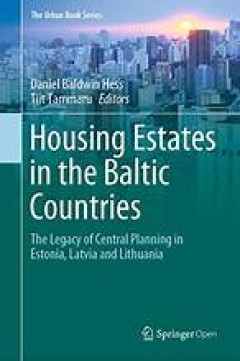
Housing Estates in the Baltic Countries
This open access book focuses on the formation and later socio-spatial trajectories of large housing estates in the Baltic countries—Estonia, Latvia, and Lithuania. It also explores claims that a distinctly “westward-looking orientation” in their design produced housing estates that were superior in design to those produced elsewhere in the Soviet Union (between 1944 and 1991, Estonia was…
- Edition
- 1
- ISBN/ISSN
- 978-3-030-23392-1
- Collation
- oer.unej.ac.id
- Series Title
- The Urban Book Series
- Call Number
- 303
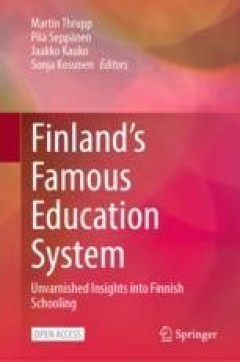
Finland’s Famous Education System
This open access book provides academic insights and serves as a platform for research-informed discussion about education in Finland. Bringing together the work of more than 50 authors across 28 chapters, it presents a major collection of critical views of the Finnish education system and topics that cohere around social justice concerns. It questions rhetoric, myths, and commonly held assumpt…
- Edition
- 1
- ISBN/ISSN
- 978-981-19-8241-5
- Collation
- XVIII, 466
- Series Title
- -
- Call Number
- -
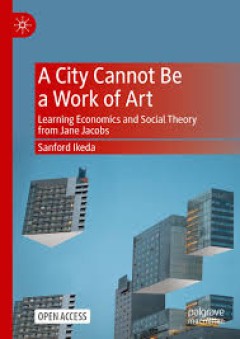
A City Cannot Be a Work of Art
This open access book connects Jane Jacobs's celebrated urban analysis to her ideas on economics and social theory. While Jacobs is a legend in the field of urbanism and famous for challenging and profoundly influencing urban planning and design, her theoretical contributions – although central to her criticisms of and proposals for public policy – are frequently overlooked even by her most…
- Edition
- -
- ISBN/ISSN
- 978-981-99-5362-2
- Collation
- XXV, 400
- Series Title
- -
- Call Number
- -
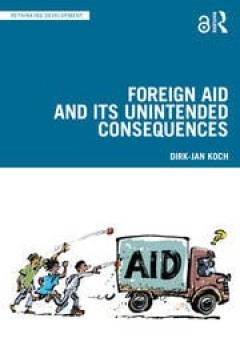
Foreign Aid and its Unintended Consequences
Foreign aid and international development frequently bring with it a range of unintended consequences, both negative and positive. This book delves into these consequences, providing a fresh and comprehensive guide to understanding and addressing them. The book starts by laying out a theoretical framework based on complexity thinking, before going on to explore the ten most prevalent kinds o…
- Edition
- 1st Edition
- ISBN/ISSN
- 9781003356851
- Collation
- 236
- Series Title
- -
- Call Number
- -

The transformation of urban space in post-Soviet Russia
In the years since 1989, the societies of Russia and Eastern Europe have undergone a remarkable transformation from socialism to democracy and free market capitalism. Making an important contribution to the theoretical literature of urbanism and post-communist transition, this significant book considers the change in the spatial structure of post-Soviet urban spaces since the period of transiti…
- Edition
- 1st Edition
- ISBN/ISSN
- 9780203969694
- Collation
- -
- Series Title
- -
- Call Number
- -

Alpine Industrial Landscapes
This Open Access book presents a pioneering research on brownfield redevelopment in mountain regions, and specifically in the European Alps. The origins and causes, the actual conditions as well as the future challenges and potentials of mountain brownfields are investigated from an interdisciplinary yet landscape-centered perspective. Through the reasoned combination of research-by-design meth…
- Edition
- 1
- ISBN/ISSN
- 978-3-658-37681-9
- Collation
- -
- Series Title
- RaumFragen: Stadt – Region – Landschaft
- Call Number
- XXI, 405
 Computer Science, Information & General Works
Computer Science, Information & General Works  Philosophy & Psychology
Philosophy & Psychology  Religion
Religion  Social Sciences
Social Sciences  Language
Language  Pure Science
Pure Science  Applied Sciences
Applied Sciences  Art & Recreation
Art & Recreation  Literature
Literature  History & Geography
History & Geography